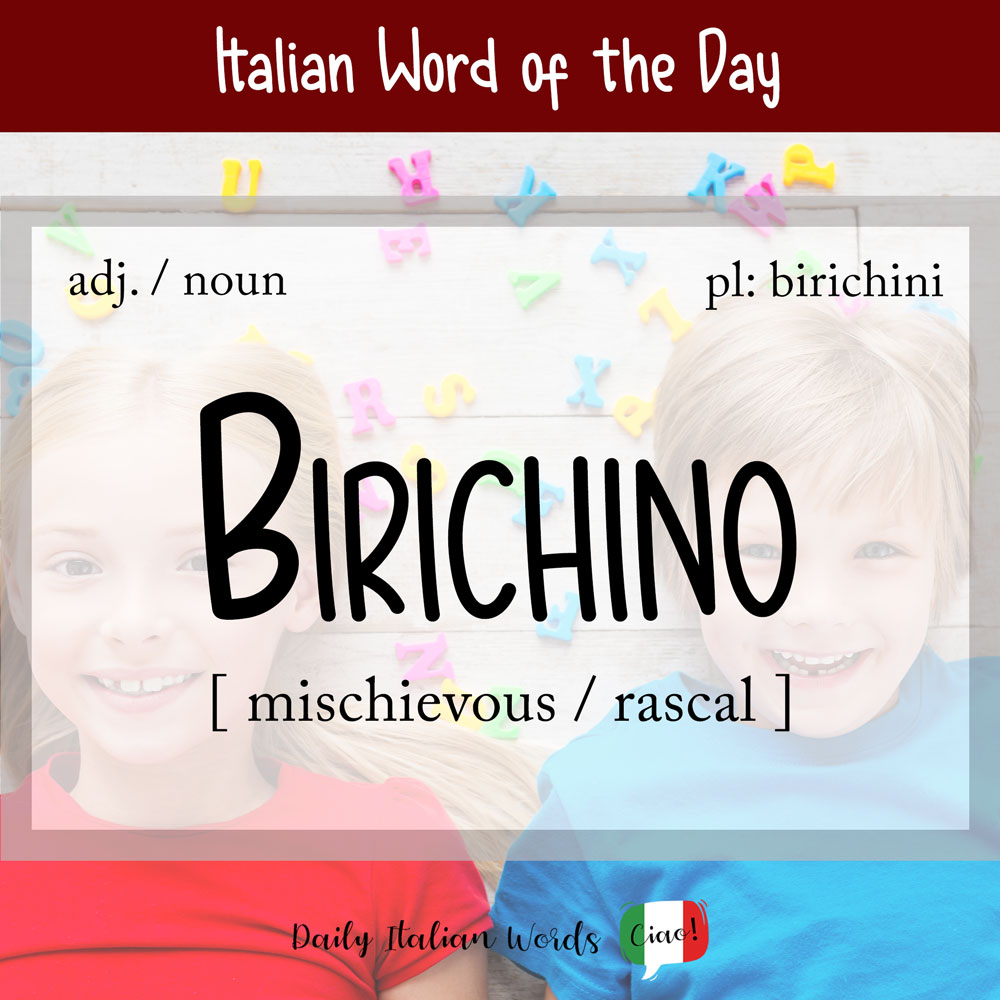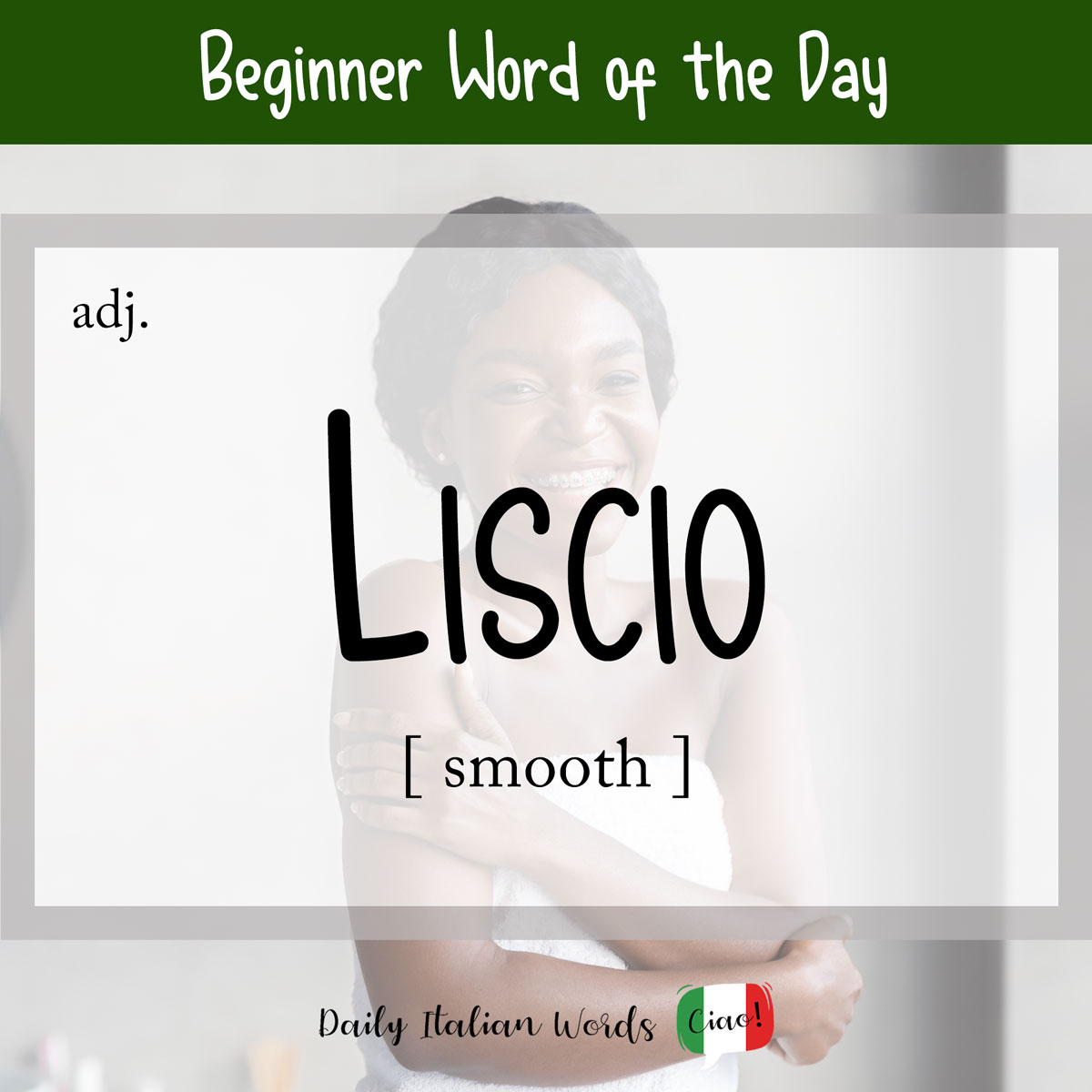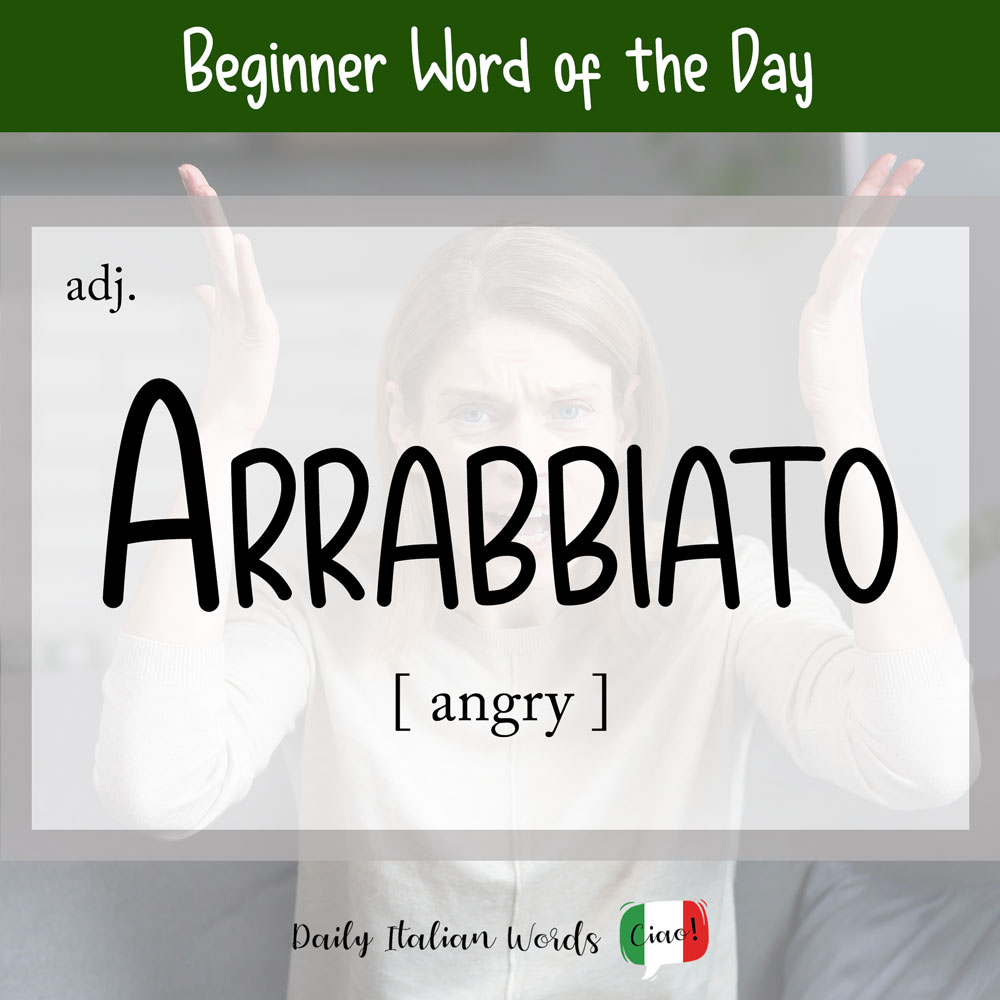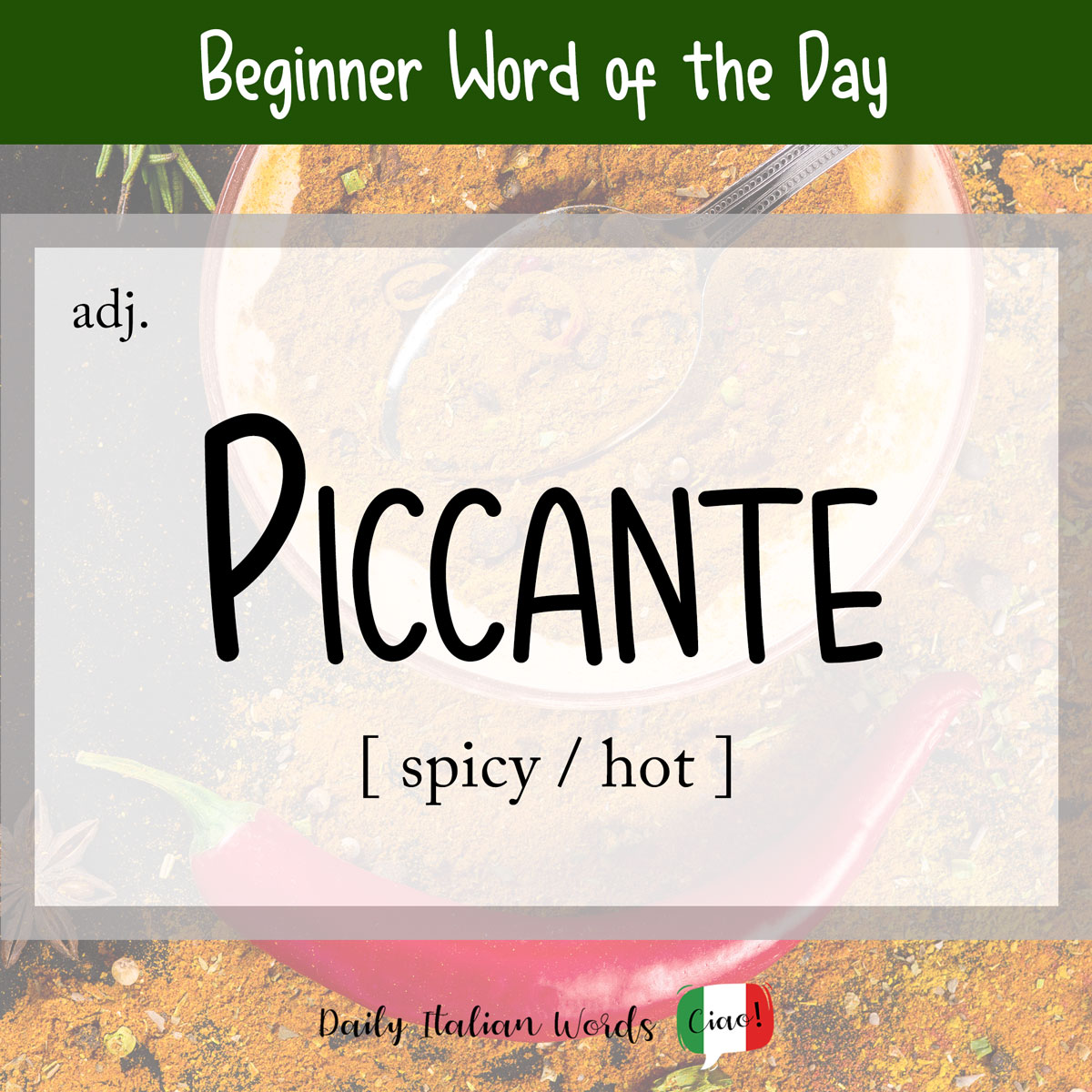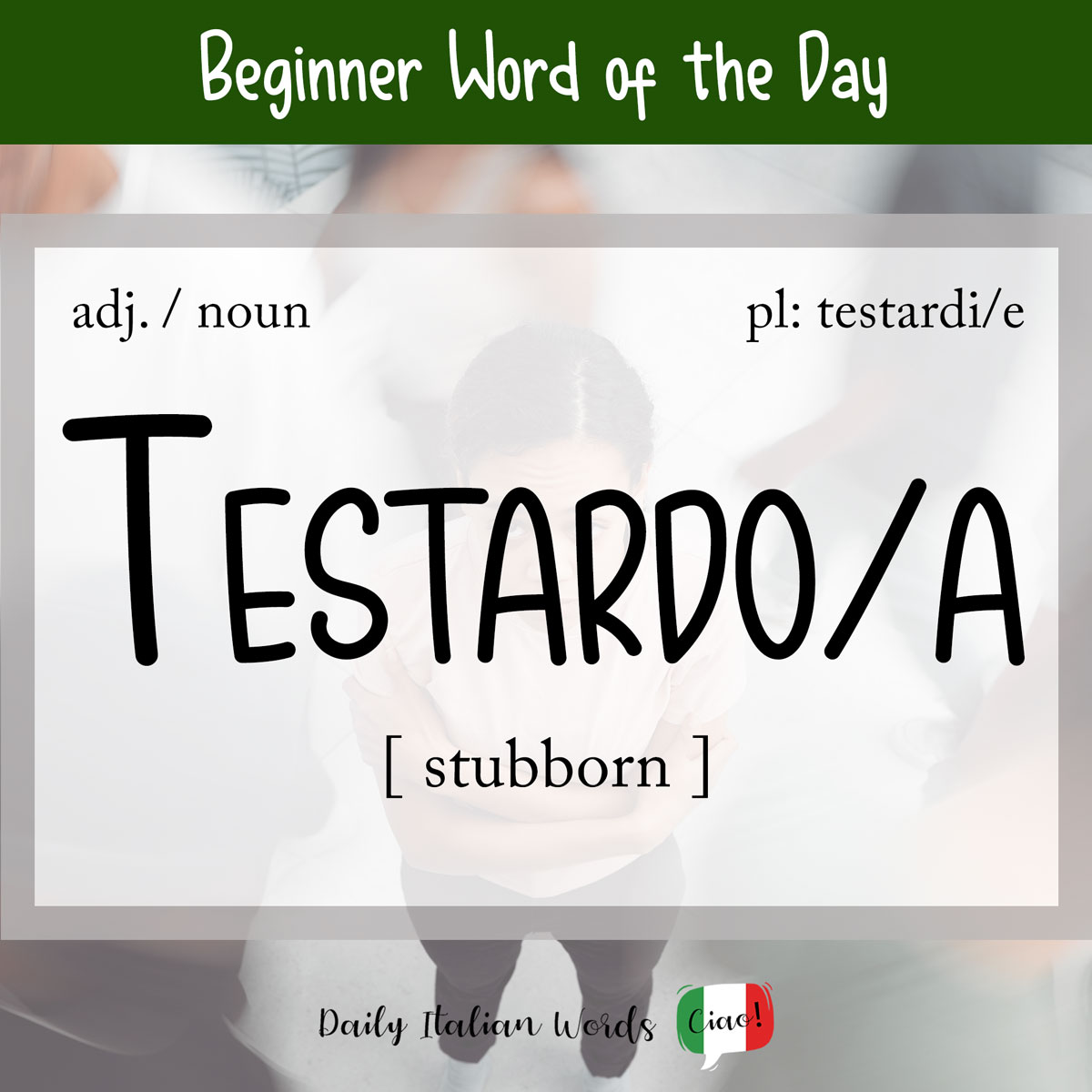Italian Word of the Day: Birichino (mischievous)
A child who causes trouble in a playful manner can be called mischievous or cheeky, which in Italian translates as birichino (masculine). Although the etymology of the word is uncertain, it is thought to originate from the Emilian dialect and may possibly be related to the word briccone (rascal). The feminine equivalent is birichina, whereas …

